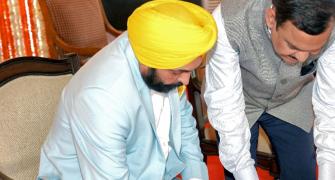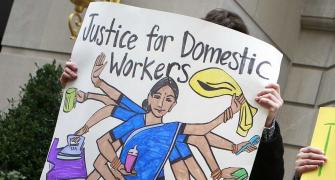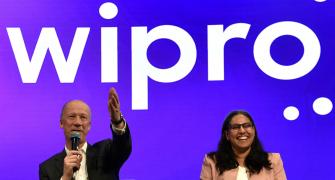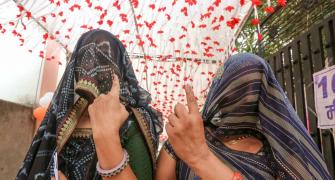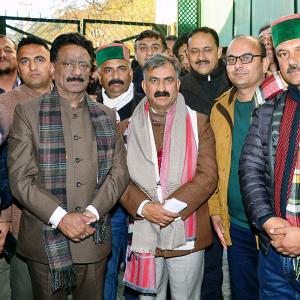With organisations like the Bharatiya Mazdoor Sangh, which is a front of the Rashtriya Swayamsevak Sangh, telling Finance Minister Nirmala Sitharaman they want OPS back, the government is in a bind, report Shiva Rajora and Aditi Phadnis.
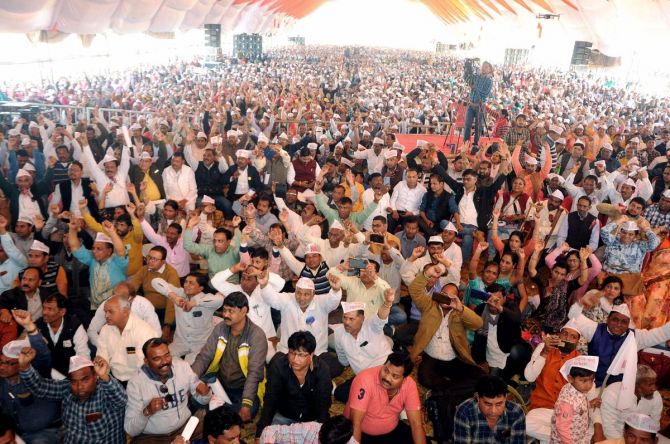
Local media quoted Manjunath as saying: “Elected representatives are getting pension, which is similar to OPS. If the government feels NPS is good, let this be extended to legislators as well.”
The state is ruled by the BJP, which has made no commitment on pension as yet. But seeing the outcome of OPS in Himachal Pradesh (HP) where a ruling government was voted out of power, many state governments are now under pressure to return to OPS, which, the Reserve Bank of India (RBI) has warned, will be disastrous for state finances in the years to come.
“People are very happy,” says Sunil Chadha, a local journalist based in HP. He was describing the mood in a state where an incoming Congress government, led by Sukhvinder Singh Sukhu, announced a return to OPS as the first item cleared by the new Cabinet when it met.
“People who had signed up for NPS are now doing the necessary paperwork to revert to OPS. The difference in pension is huge,” says Chadha.
HP is a state where the government is the biggest employer. Today, the state is using about 74 per cent of its tax revenue only to fund pensions. While the first set of bills will come only in 2034 (when the state government will have to start paying pensions to those who moved from NPS in 2004 to OPS today), the demand is becoming a big political challenge to the point where it is pushing more and more state governments to announce that they would be open to a review of the pension schemes.
Maharashtra Deputy Chief Minister Devendra Fadnavis was the latest to make this announcement as members of legislative assembly from the ruling BJP-Shiv Sena alliance conceded that the electoral setback faced by the alliance in the recent legislative council elections was because “Rahul Gandhi had announced that if the Congress comes back to power, it will promulgate OPS in Maharashtra”.
“Yes, it is true that 90 per cent of voters were unhappy with the pension issue. But one must note that it was the Congress and the Nationalist Congress Party government in 2005 that rolled back the OPS,” said state BJP chief Chandrashekhar Bawankule.
Of the five legislative council graduates and teacher constituencies (where only persons from these two categories have the vote. Teachers must be full-time employees in a secondary school or higher), the Maharashtra Vikas Aghadi, in which Congress is a constituent, won three. The BJP could win only one, with one seat going to an Independent who is likely to join the Congress.
In the recently concluded winter session of the legislature, Fadnavis had said, “The government will not revive OPS. Its reinstatement will put an additional burden of Rs 1.1 trillion on the state exchequer.”
But after the results were out, he said the government was open to reviewing its decision.
Congress-ruled states of Chhattisgarh, Rajasthan, and Jharkhand, where they are a partner in government, have already announced they will revert to OPS, even as the RBI has sounded a note of caution.
What is the economics behind the politics?
OPS, financed on a pay-as-you-go basis, is an unfunded pension scheme where current revenues fund pension benefits. Under OPS, retired employees received 50 per cent of their last drawn basic salary as monthly pensions until the time of their death. Also, the pension is inflation-indexed. Under this scheme, the entire expense is borne by the government. So, in a way, OPS involves a direct transfer of resources from the current generation of taxpayers to fund pensioners.
NPS, on the other hand, is a defined contribution pension scheme where an individual has to undertake retirement planning while in employment.
NPS was made mandatory for central government employees joining services on or after January 1, 2004, and almost all state governments adopted it for their employees. It is regulated by the Pension Fund Regulatory and Development Authority, and under this, employees contribute 10 per cent of their salary (basic + dearness allowance), whereas the central government contributes 14 per cent, in the case of its employees, towards the employees’ NPS accounts. The state government contributes 10 per cent in the case of its employees.
The bottom line is: government employees say they want guaranteed returns. This is impossible in NPS as returns are market-linked.
But with organisations like the Bharatiya Mazdoor Sangh, which is a front of the Rashtriya Swayamsevak Sangh, telling Finance Minister Nirmala Sitharaman they want OPS back, the government is in a bind.
Moving forward this demand will get votes. But it will be a financially regressive move.
Says Sushil Modi, Rajya Sabha Member of Parliament from BJP and former Bihar FM: “We have to safeguard the rights of future generations”.
But the government cannot ignore calls by Manjunath either.


